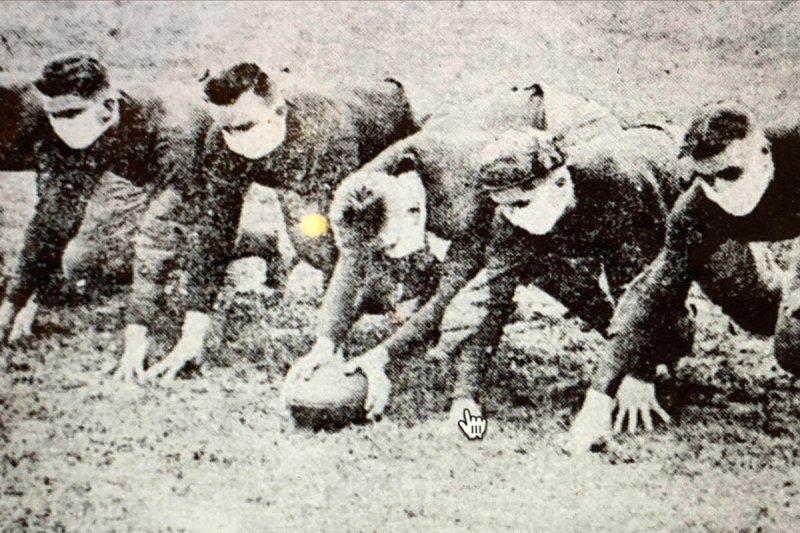The 1918-19 flu scourge was more lethal than the current coronavirus pandemic, killing 675,000 in the U.S., and was especially fatal in 20- to 40-year-olds. Covid-19 infections have killed more than 180,000 this year, and the U.S. has more than three times the population it did a century ago.
Why would universities in 1918 forge ahead with football while a virus decimated the ranks of young, healthy men? The answer is something arguably even bigger than a global pandemic: a global war.
The lead-up to that 1918 college football season was similarly chaotic to this year’s, which starts in earnest on [September 3] with about half of the nation’s major college teams opting out. But the overlay of World War I made 1918 unique, and gave grim weight to the metaphor of football as a battle.
The U.S. War Department warned in September 1918 that college football could be canceled because it would distract from military training.
A couple of weeks later, the government pivoted like an All-American receiver. The game could help build the aggressiveness to fight and the grit to endure grinding days in the trenches of France, it reasoned. “It would be difficult to overestimate the value of football experience as a part of a soldier’s training,” President Woodrow Wilson later wrote.































